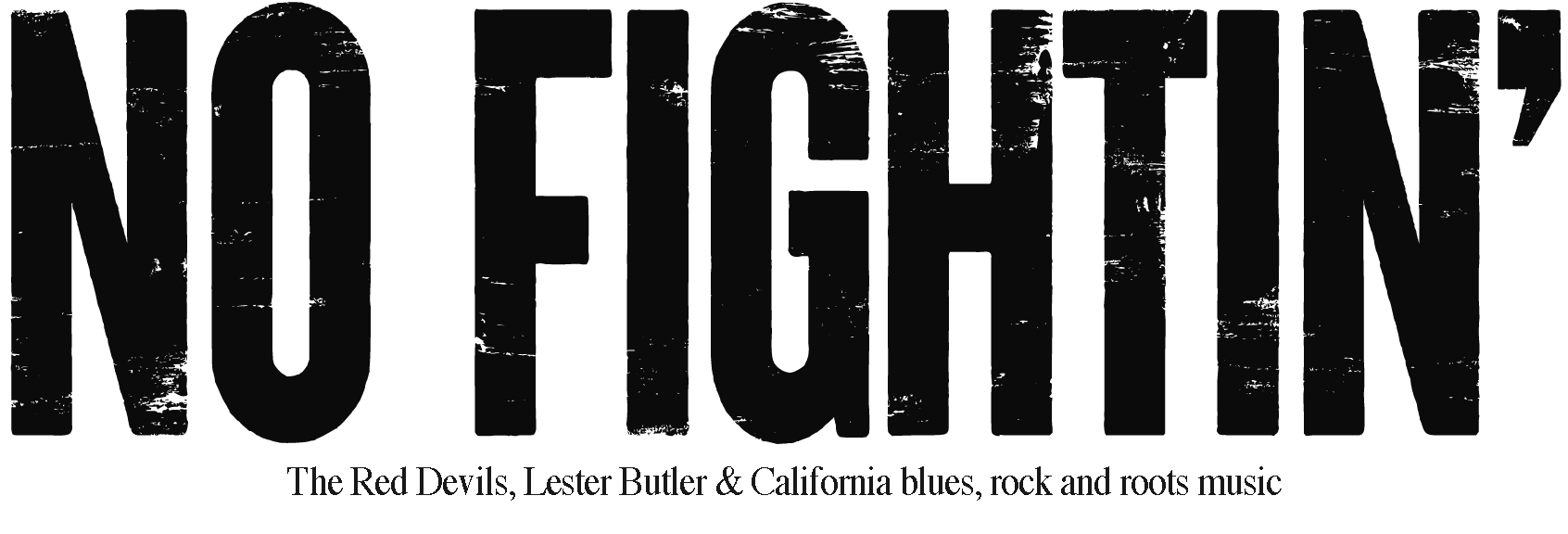By the age of 20, I was already a pretty devoted blues fan. I’d been listening to Bo Diddley, Elmore James, Muddy Waters and John Lee Hooker for several years, and college was the perfect place to experiment with hardcore blues.

But my eyes would be opened in the summer of 1992, back home with my family in South Bend, Ind., on first hearing The Red Devils.
Each week (or sometimes a couple times a week), my friends and I would hit all the local record stores, scouring the bins for the obscure, rare or just plain cool.
I can still remember where I was standing in the Tracks Records store (now gone), just in the shadow of Notre Dame University’s Golden Dome, when the clerk changed CDs in the store player.
First, the crowd chatter. Then, a casually strummed chord, and a quick snare drum roll. Then, a harp lick so in-the-pocket that a deaf man could have picked up the groove. “Automatic” was just background as I shuffled through the racks, but it was something different, fresh and classic at once. It was a live recording, but it wasn’t just applause on a clean music track like some live records. Instead, you could hear the buzz of the amps. You could sense how cramped the stage might have been. You could feel the room temperature and the time of night it had all gone down. You could see the head nods as the singer gave a solo to the guitarist. In mere seconds, this sound had my attention.
Next up was a hard-driving lick that I instantly associated with the double-time ending of Muddy’s “Still A Fool.” Not knowing anything about the band or the recording’s vintage, I quietly did some mental detective work:
The harp player’s aggressive, but isn’t playing Little Walter licks. He doesn’t have that giveaway thin tone, sucking-and-blowing style of a rock dude who is “blowing harp,” but, rather, bending notes. The drummer is really double-shuffling, not cheating like a rock drummer, 1-2-1-2, and there are no rock fills. The guitars are loud, yes, but in the noise, they are playing real live blues licks. There’s something to this — but what is this?
Now I was almost sold. But my hopes weren’t high yet; my assumption was this was some kind of side-project rock supergroup playing dirty, getting their ya-ya’s out on some blooze. If it wasn’t something that predictable, I thought, why hadn’t I heard of it? I didn’t know the tunes at all, and figured that the record would soon show itself as the usual guitar jam blues-rock that most of these things are.
Track three came on, and this time, it was pure hoochie-coochie stop-time magic. These guys were seriously beating the hell out of a textbook Willie Dixon riff — only it wasn’t the cartoonish Monday night blues jam version I had heard from the locals seemingly hundreds of times. This stuff was serious, dangerous, and the lyrics came off as real and modern.
Now I was convinced. I darted up to the counter, trying to be cool, but giving away my blues geekiness: “Oh my God … who is this?”
“It’s the Red Devils out of California,” I recall the clerk saying. “We just got this disc, it’s produced by Rick Rubin and it’s on Def American.”
OK, I thought, this is all too weird to be true. Now, my apologies to my friends who might have been with me, and any other lonely CDs I purchased on the same day, but all I can remember now is buying that disc on the spot, jumping into my car (with no CD player), flying home and poring over The Red Devils’ “King King” album. This was still a bit before the Internet, so all I had to go on was the pictures, the credits and the music. But I was hooked. This was real-deal blues, and I had my summer fixation. And I couldn’t wait to get back to school in the fall and tell my friends what I had found.
Little did I know the impact that record would have on my friends as well — and that, a couple of months later, I’d be in a bar down the street watching The Red Devils live in person.

Tell me about it! I remember finding the CD in what used to be Virgin Records in Aberdeen, years ago now. I’ve journeyed way, way through the blues since then, but I still play that album, and every time I hear it I think to myself, “Damn, that’s good!”
LikeLike